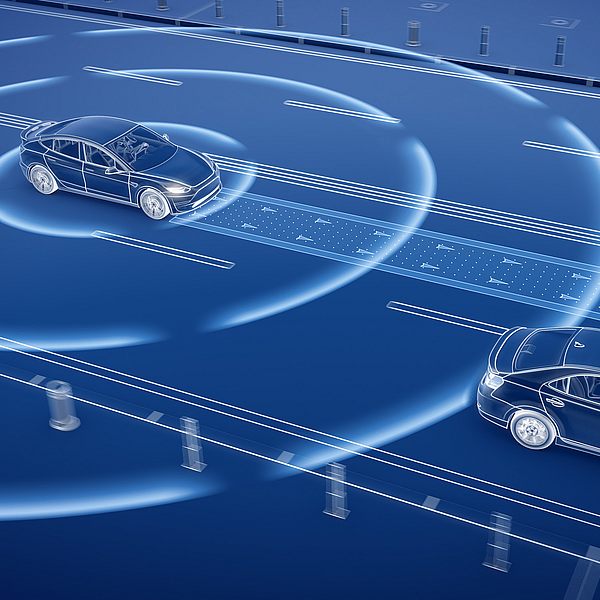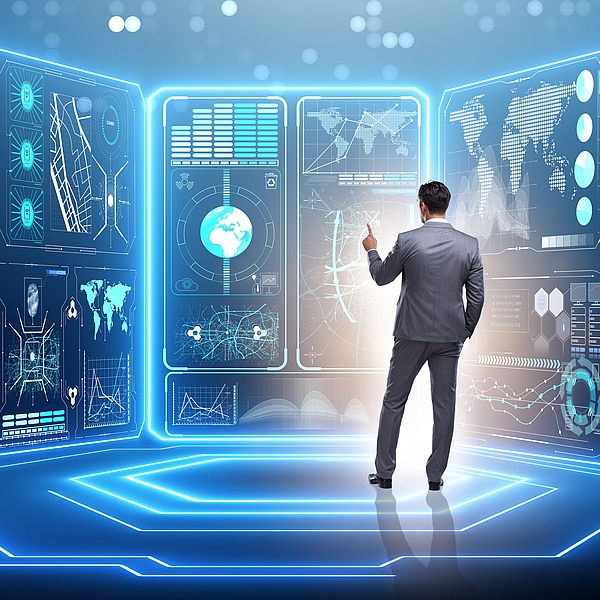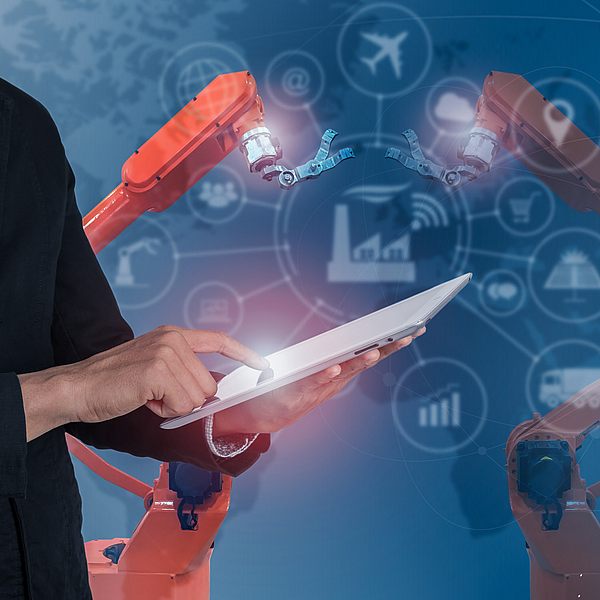Fields of application of the DIGIT

Autonomous systems
In the future, autonomous systems with artificial intelligence will take on a wide range of tasks and functions.
Based on sensor data acquisition, machine perception and robotics, autonomous systems are conquering previously unimagined fields of application. Autonomous systems are not only robots, but also vehicles or virtual assistants.
Autonomously acting care robots can support people with physical or cognitive limitations. Mobility and logistics systems can become safer and more efficient. In dangerous environments, autonomous systems can replace humans. In addition, there is a decentralization of control and monitoring tasks associated with digitalization and the associated spread of local intelligent systems that handle partial tasks autonomously. The importance of the topic of "autonomous driving" is well known and has been the focus of industry and politics for several years.
Even though the first autonomous vehicles are already being tested in public road traffic, fully autonomous vehicles represent an enormous technical challenge. A core problem here is the interpretation of the traffic situation in the environment of the autonomous vehicle. Autonomous systems will solve subtasks independently and will be networked with other autonomous systems directly or via a safety-critical IT infrastructure.

Circular Economy & Environmental Technology
Raw material processing and recycling, the remediation of contaminated sites and the treatment of industrial wastewater are the focal points of this field of application in research and teaching.
Increasingly scarce and expensive raw materials on the one hand, and growing mountains of waste on the other, present society with the challenge of efficiently recycling waste as a source of secondary raw materials. Environmental damage during treatment as well as the disposal of unusable residues must be avoided, contaminated sites must be remediated.
With the help of mechanical, chemical and thermal processes, intelligent recycling as well as soil and wastewater treatment methods can be developed.

Digital Transformation
In recent years, increasing digitization has led to a number of new, highly successful digital business models. At the interface with computer science, innovations will arise here in the future and thus the opportunity to develop new digital business models and business processes. In addition to some basics of business informatics in connection with the management of digital transformation, this research area deals with topics of business model development and innovation management, by means of which such innovation processes towards digital value creation, digital artefacts and processes can be accompanied in a structured manner.

Energy
The energy supply of mankind has become one of the most important topics in modern times in terms of heat and power supply for households and industry as well as mobility. In all areas, according to the state of the art, mainly fossil raw materials are used as primary energy sources. The shortage of raw materials and the changes in the earth's climate are forcing us to increase the use of regenerative energy sources as well as to save on consumption.
Qualified engineers are needed for the new and further development of the different technologies for energy conversion, who are optimally trained at the TU Clausthal in the wide-ranging subject area of "energy".

Industry 4.0
You want to help shape the future of production? As a "digital native", they know the advantages and disadvantages of social networks and the Internet.
Learn how production processes and structures will shape the future in this application area. Whether you want to teach robots to work with humans, use computers to control production or design products for the digital transformation, they will learn the most important concepts here.
In the application area Industry 4.0, you can gain initial experience for your later work in manufacturing companies or development departments at plant manufacturers through many practical examples and projects already during your studies. There, you will typically be in charge of production systems that will continue to optimise themselves in the future. This requires special knowledge not only about information processing, but also about production processes and their control.

Mobility
On the move is everything and everyone - mobility is one of the central lifelines of our modern society. No matter whether it's the daily commute to work by bike, a holiday trip by train or the control of complex transport infrastructures, such as at central transport hubs... mobility and transport play a role in all these situations.
These examples are only a small sample of the issues we deal with in modern traffic management. We use methods from traffic and mobility research to analyse current traffic challenges and then implement state-of-the-art solutions by networking components and exchanging information at the interface between mobility and information technology. Digitalisation offers enormous potential, for example to improve urban transport processes, to intelligently network environmentally friendly means of transport such as bicycles and public transport, or to facilitate long-distance journeys with electrically powered vehicles. With the approaches from digitalisation, a significant process improvement is achieved in these scenarios.
In the field of application "Mobility", we address topics from modern transport planning and integrate the professional competences of the professors involved. Cooperations with industrial companies, transport companies and public administration offer the opportunity for practice-oriented research projects. In addition, findings from scientific research flow into teaching and offer future digitalisation specialists excellent opportunities to shape the mobility of the future.
